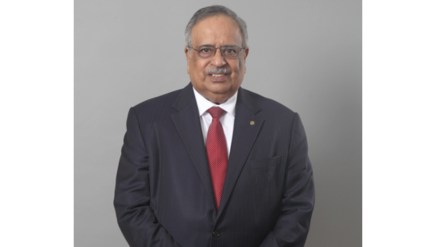The government should set up a search-cum-selection committee to appoint Sebi chairpersons, M Damodaran, former chairman of Sebi and founder of Excellence Enablers, tells Akshata Gorde in an interview. The committee should also look for persons who fit the position but may not have applied, and need to be persuaded, he said. Excerpts:
Some of the recent Sebi regulations have sparked debates about over-regulation and micromanagement. Do you think that is happening?
Micromanagement is not regulation, they are different. Micromanagement is when the regulator steps into the company’s shoes. That’s not something that should be encouraged. The regulator must only say what is right and what is wrong. These excessively prescriptive regulations will actually kill the golden goose.
A large group of Sebi employees recently raised concerns of micromanagement as well as a toxic work culture. Having managed the organisation yourself, do you find this alarming?
Unless employees reach a very high level of frustration, they will not agitate. I don’t know what their issues have been, but there must be some merit because Sebi issued a press release and then retracted it. When you issue a press release, you should be able to stand by it later. It is an unfortunate development.
What’s your take on the recent controversy about the current Sebi chief?
People should have confidence in the organisation. Regulators should have credibility. Otherwise, it’s not right. This doesn’t mean that the present incumbent lacks credibility. The point is that it is an essential requirement. Owning stake in a company is not an issue provided there is adequate disclosure. It is the source of the money that comes and goes out of the company that merits scrutiny. When you say it’s dividend income or a similar receipt from your earlier career, then there should be no scope for complaint. However, if it’s consultancy income, there’s a problem.
Do you think the allegations would prompt the government to appoint a Sebi chairperson only from the public sector and not the private sector in the future?
Most likely they will continue with the existing procedure of identifying somebody and putting them through a selection committee headed by the Cabinet Secretary. However, I have a different view on this. I believe an expert committee should be set up which would be a search-cum-selection committee. It will also look for persons who fit the position but may not have applied, and should be persuaded.
Once that expert committee shortlists, it should go to a parliamentary committee, preferably the consultative committee of the finance ministry. And then that person will be asked questions to ascertain his or her fitness, similar to the procedure in the US.
One such conversation will be enough to ascertain any past conflicts or the credibility of the candidate, to avoid such questions being raised subsequently.
The regulator’s reputation took another hit with the US Department of Justice and SEC accusing the promoters of the Adani group of misstatements, non-disclosure and bribery. How can Sebi protect Indian investors from the consequences of the ongoing investigation and alleged crimes?
It’s a large group, with some listed entities having previous history of shares moving up and down very rapidly. So, it has implications for the market. The shares of the banks which have financed the companies also went down after the US DOJ indictment order. This is an instance of alleged violation of the Foreign Corrupt Practices Act (FCPA).
If it was a securities law violation, it can be settled. Pay a settlement amount, get a consent decree. However, here the option might not be available and a full-fledged trial might take place.
Sebi won’t be able to prosecute an FCPA case. At best, Sebi will look at disclosures. Sebi has to insist on disclosures. Disclosures should be correct, complete and timely.
There have been instances where companies have faced legal charges from a Sebi department because the informal guidance given by another department is not legally binding. What changes does the regulation need?
Sebi should scrap informal guidance, and instead have an advance ruling mechanism, similar to the income tax department. So, if a company goes to Sebi asking if its future plans are on the right side of regulations, the ruling authority will give an opinion and say yes or no.
The regulator is not owning up to a decision of one of its departments. No matter which department the informal guidance comes from, the whole organisation should own up to it.
An outside person is asking Sebi for an opinion and is not expected to know which department is going to take it up. Sebi should also make the guidance given to a company available on the website, without naming the company. This will simplify the process for other companies with similar queries as also for the regulator. Repeated references on the same subject can also be avoided.
